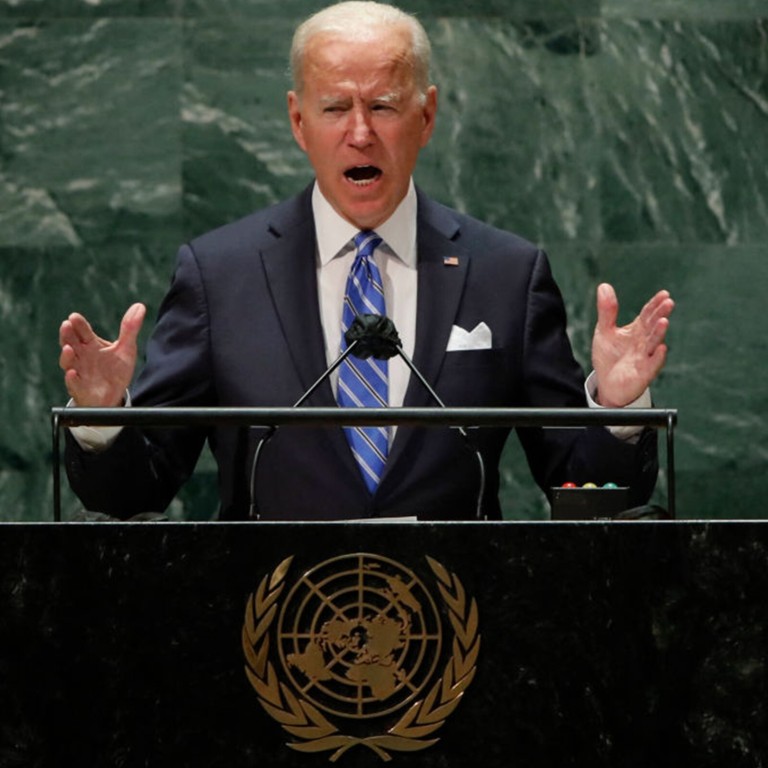
Biden and Xi address UN, juggling differences amid calls for unity on climate and Covid-19
- In first address to General Assembly, US president says he ‘is ready to work with any nation that steps up and pursues peaceful resolution to shared challenges’
- ‘We need to advocate peace, development, equity, justice, democracy and freedom, which are the common values of humanity,’ Chinese president tells the UN
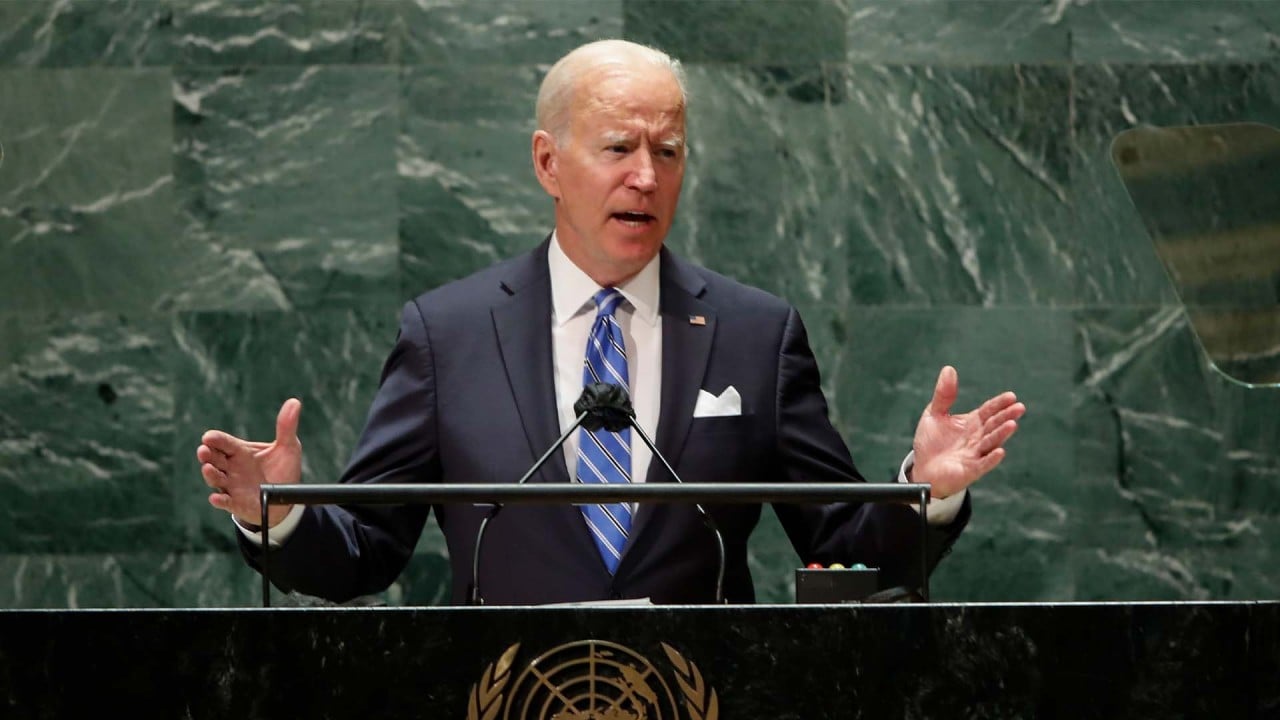
02:47
US ‘not seeking a new cold war’, Biden says in first UN address
“The authoritarianism of the world may seek to proclaim the end of the age of democracy, but they’re wrong,“ Biden said in a half-hour speech delivered at the UN headquarters in New York. “The truth is, the democratic world is everywhere. It lives in the anti-corruption activists, the human rights defenders, the journalists.”
In a pre-recorded speech delivered by video link several hours later, Chinese President Xi Jinping highlighted the need for inclusive growth, mutual solidarity and better global governance based on equality. Xi proposed a Global Development Initiative to that end without providing details.
“Democracy is not a special right reserved for any individual country. Recent developments in the international situation show once again that military intervention from the outside and so-called democratic transformation entail nothing but harm,” Xi said, seated behind a desk in front of a picture of the Great Wall.
“We need to advocate peace, development, equity, justice, democracy and freedom, which are the common values of humanity, and reject the practice of forming small circles or zero-sum gains.”
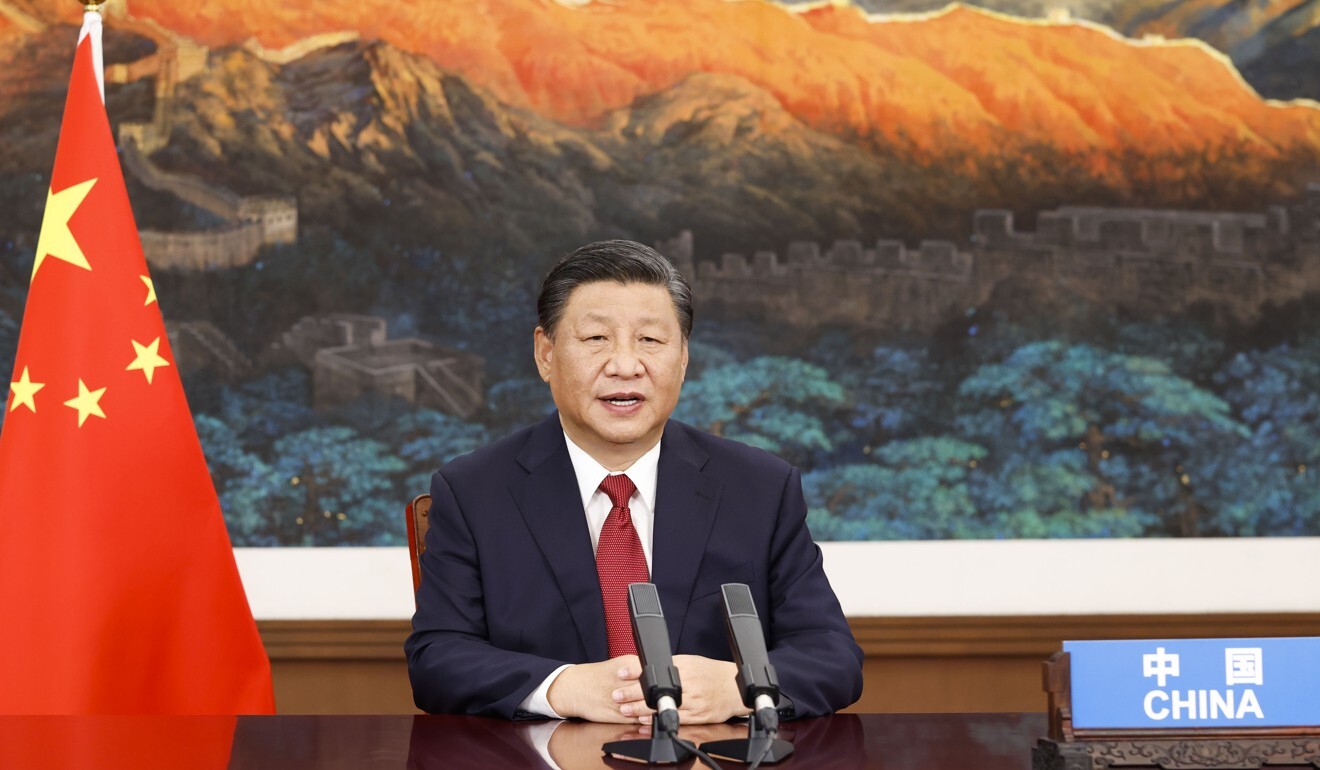
Earlier scheduling indicated that China’s address would be delivered at the end of the General Assembly week by a deputy prime minister. It is not clear why Beijing opted to have Xi speak to the assembly by video instead, though it was seen as a possible response to Biden’s high-profile address and his administration’s criticism that China falls short on adhering to global rules and norms.
Even as the leaders of the world’s two largest economies staked out their territory, however, each issued a diplomatic opening – however small and theoretical – to cooperate, touted the importance of diplomacy over militarism and stopped short of using the other country’s name or engaging in direct verbal attacks.
This followed a warning over the weekend by UN Secretary General António Guterres that growing confrontation risked a new “Cold War” if the two superpowers are unable to find common ground.
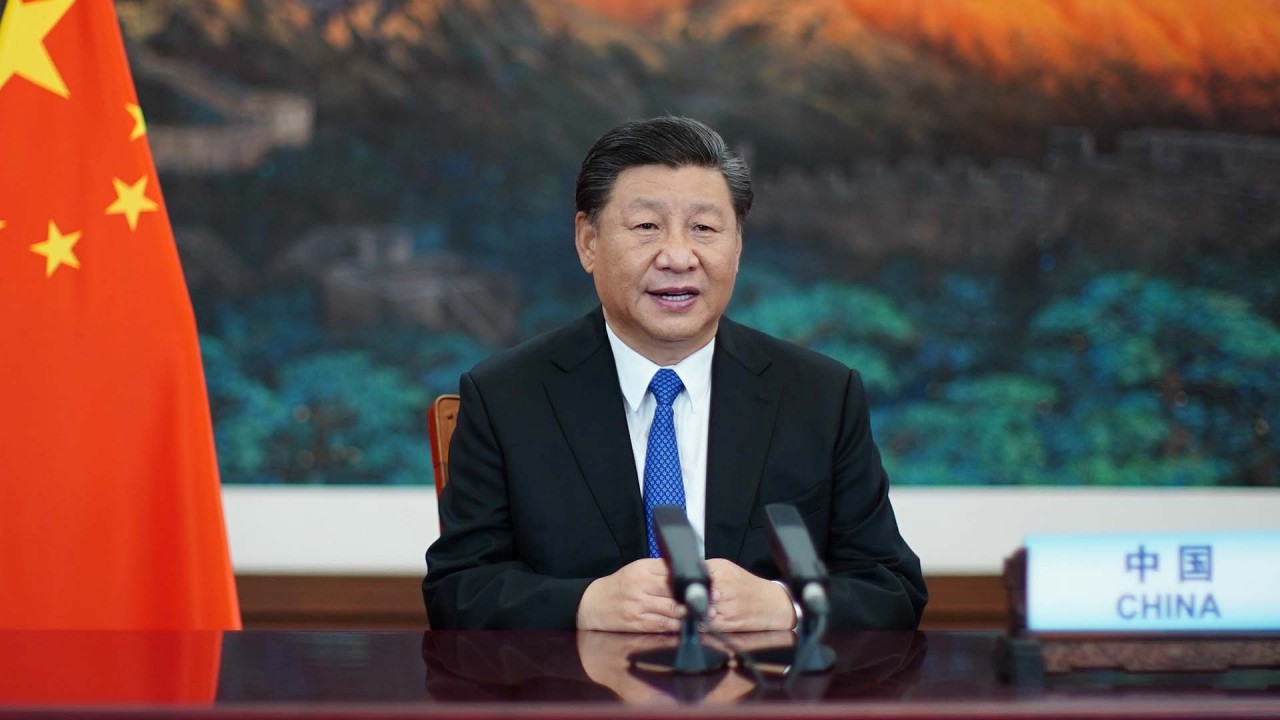
02:45
‘China has never and will never invade or bully others’, Xi tells UN General Assembly
“Differences in problems among countries need to be handled through dialogue and cooperation on the basis of equality and mutual respect,” Xi said.
Earlier, Biden said: “We are not seeking a new Cold War or world divided into rigid blocs. The United States is ready to work with any nation that steps up and pursues peaceful resolution to shared challenges.”
Biden’s wide-ranging speech made direct appeals to the global community, acknowledged US shortcomings while touching on a raft of challenges – including North Korea, Yemen, Afghanistan and the Israel-Palestine conflict. Noting the end of 20 years of war in Afghanistan, he said that military might should be a “last resort” when diplomacy has failed even as he laid out a stark choice.
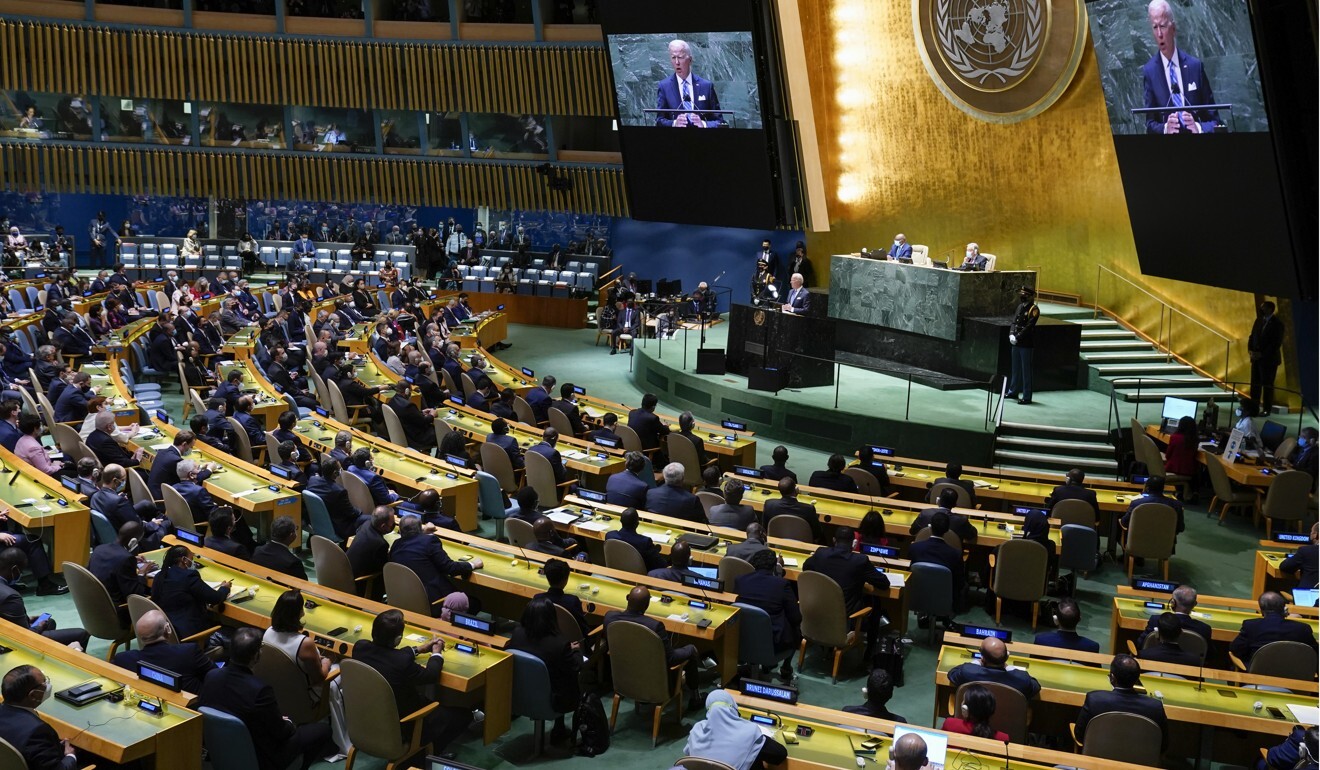
“The future will belong to those who unleash the potential of their people, not those who stifle it. The future will belong to those who gave their people the ability to breathe free, not those who seek to suffocate their people with an iron hand,” Biden said.
Xi took a more abstract approach, only diving into specifics toward the end of his remarks. “China has never and will never invade or bully others, or seek hegemony,” he said. “China is always a builder of world peace.”
Both countries sought to highlight what they had done in the global fight against Covid-19. Biden is set to announce a major initiative on Wednesday that will greatly expand doses abroad aimed in part at countering China’s aggressive “vaccine diplomacy” campaign.
And Xi pledged on Tuesday to provide developing countries with US$3 billion for Covid-19 and economic relief over the next three years. It was not immediately clear if this represented new funding.
Even as the two giants claimed bragging rights, however, the first speaker Tuesday morning at the weeklong UN assembly was Brazilian President Jair Bolsonaro, who has refused to get vaccinated. The 100 or so leaders who chose to attend in person had to declare that they were feeling well and had experienced no symptoms in the previous 10 days.
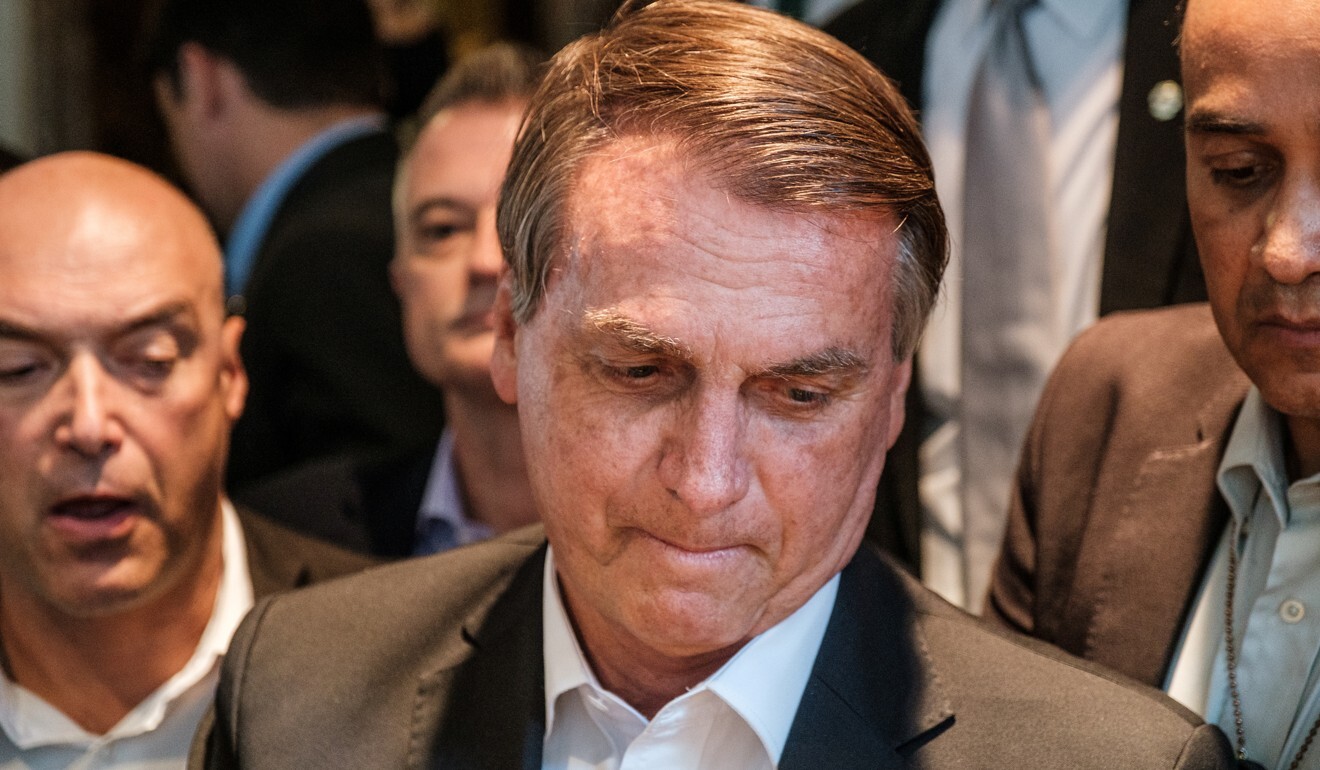
Cooperating with allies and burnishing America’s multilateral credentials has been a cornerstone of Biden’s foreign policy and strategy to counter China’s growing might. But he has faced a raft of challenges in recent months trying to reassure allies who expected more deft, rapid cooperation after four years of former president Donald Trump’s “America First” agenda.
The rapid US withdrawal from Afghanistan – a decision initiated by Trump but one Biden generally supported – has left partner nations there struggling to extract staff and armed service members.
Biden has also faced criticism for failing to send more vaccines to developing countries. And he is trying to recover from a diplomatic falling-out last week with France, America’s oldest ally, over a new US-Australian-British security alliance dubbed Aukus that would sell at least eight US nuclear-powered submarines to Australia. That upended a $66 billion contract for diesel-powered subs that Canberra had negotiated with Paris, rankling the European Union.
Is French fury at US over new pact a chance for Beijing to improve relations with Europe?
French President Emmanuel Macron declined to attend the UN assembly and senior White House officials have acknowledged that Biden is trying to get him on the phone in a bid to mend fences. On Monday, French Foreign Minister Jean-Yves Le Drian said there was a “crisis of trust” with Washington over the move.
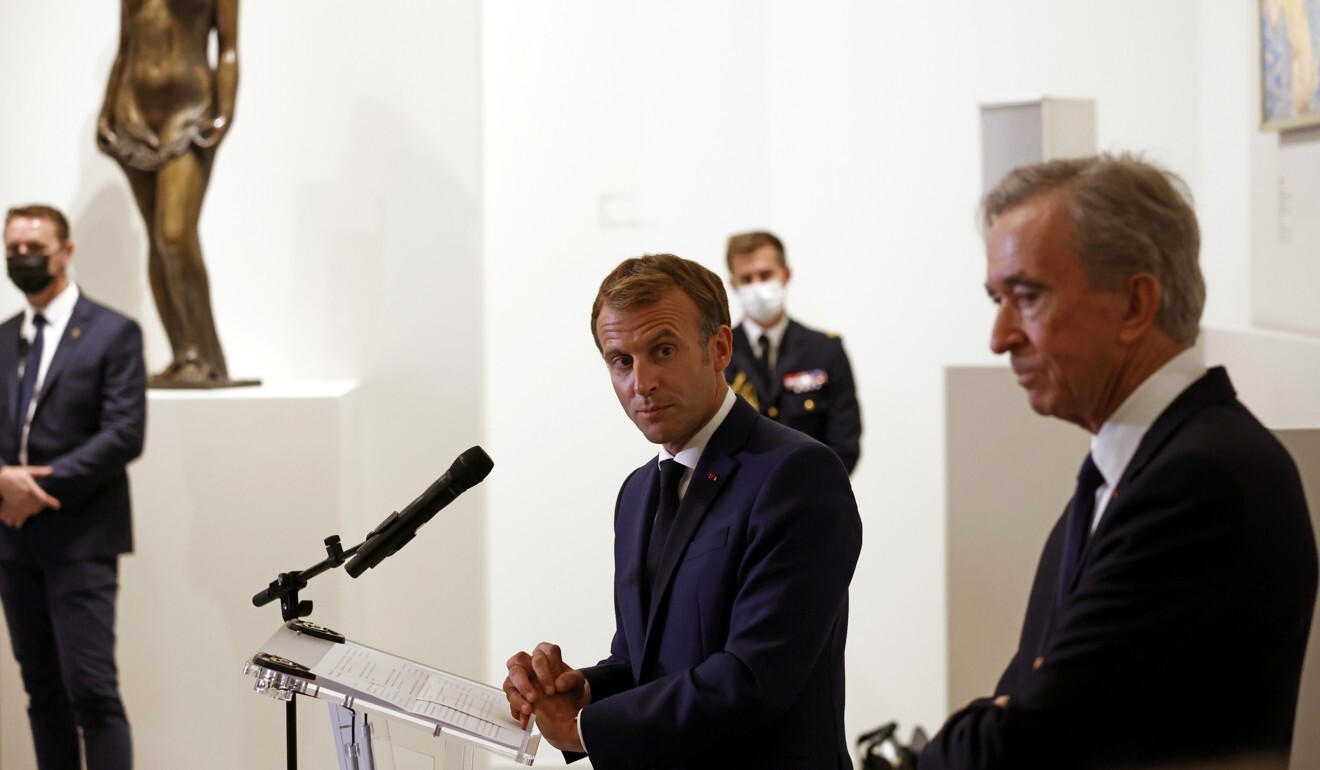
“Considering his need to convince people that he is the commander-in-chief, it’d be unimaginable for him to significantly tone down his tough stance on China,” he added.
Analysts said that Biden’s speech and overall approach was gaining some traction with the global community in the US-China contest for friends, but that Washington still faces some tough sledding after years of Trump’s isolationist policies.
“I can see that the US image is coming back, but it’s not going back to No 1,” said Nicholas Cull, a public diplomacy professor at the University of Southern California’s Annenberg School for Communication and Journalism. “There are lots of indicators that people continue to see problems in the US, rightly.”
But Cull added that the numerous crackdowns in China under Xi – from Hong Kong to business leaders and lawyers to women’s rights activists and ethnic minorities – doesn’t play well overseas. “None of that maps to confidence,” he said.
Don’t target third party, China says, as Biden prepares to host Quad leaders
China is a distant second to the United States in financial contributions to the UN, accounting for around 12 per cent of the institution’s annual budget; the US share is some 22 per cent, although American arrears grew during the Trump administration.
While Biden avoided any direct condemnations of China during his UN speech, at the same time key administration officials and lawmakers in Washington were citing threats posed by China and making accusations of the sort that characterised the Trump era.
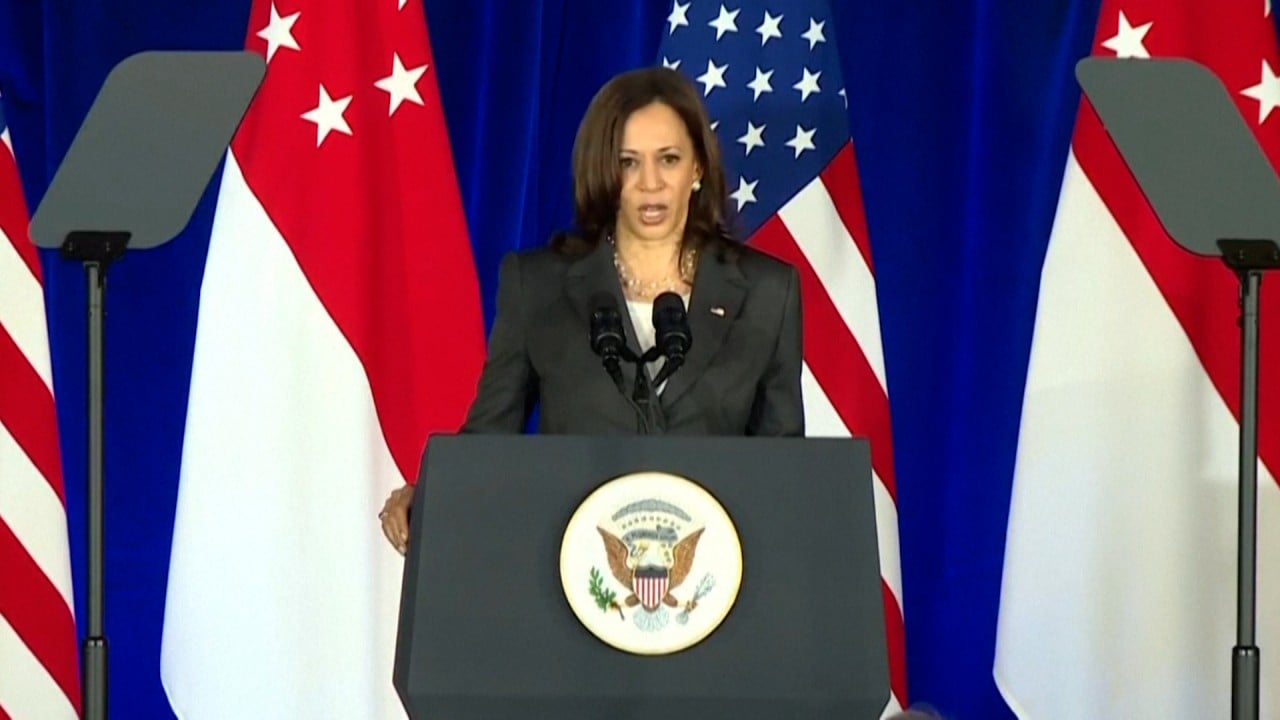
01:19
US Vice-President Kamala Harris: China continues to ‘coerce’ and ‘intimidate’ in South China Sea
In a Senate hearing about national security threats, Homeland Security Secretary Alejandro Mayorkas said China continues to generate “counter-intelligence and malign” threats, engage in intellectual property theft, the exploitation of vulnerable supply chains and use of economic coercion that threaten national security, themes echoed by Federal Bureau of Investigation director Christopher Wray at the same hearing.
Additional reporting by Robert Delaney and Owen Churchill


